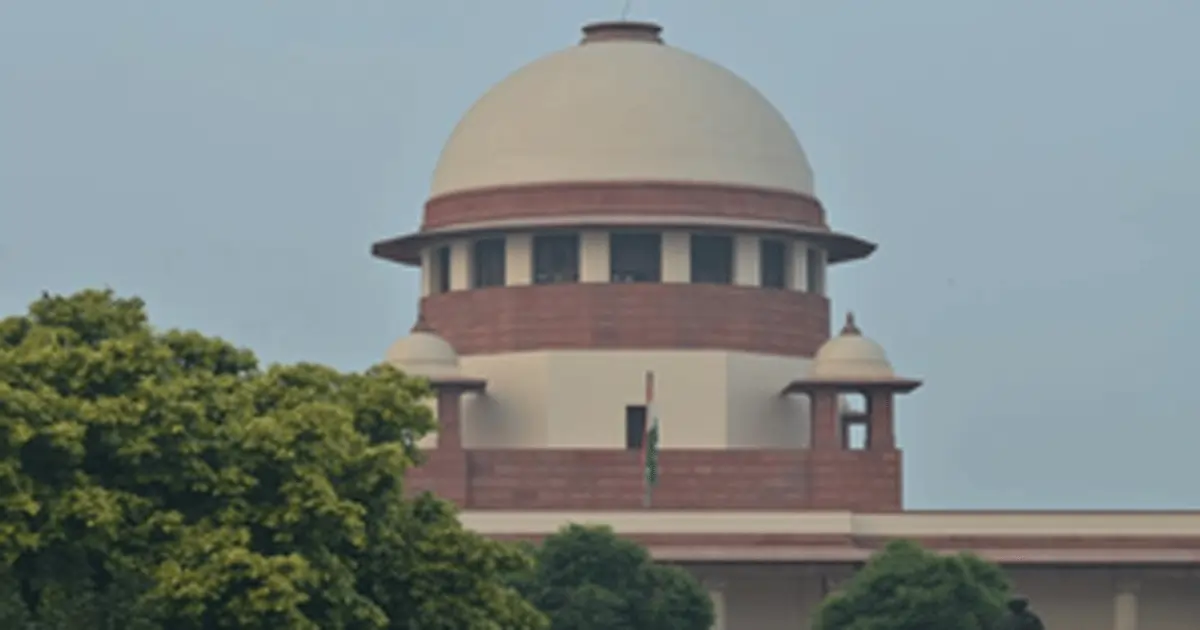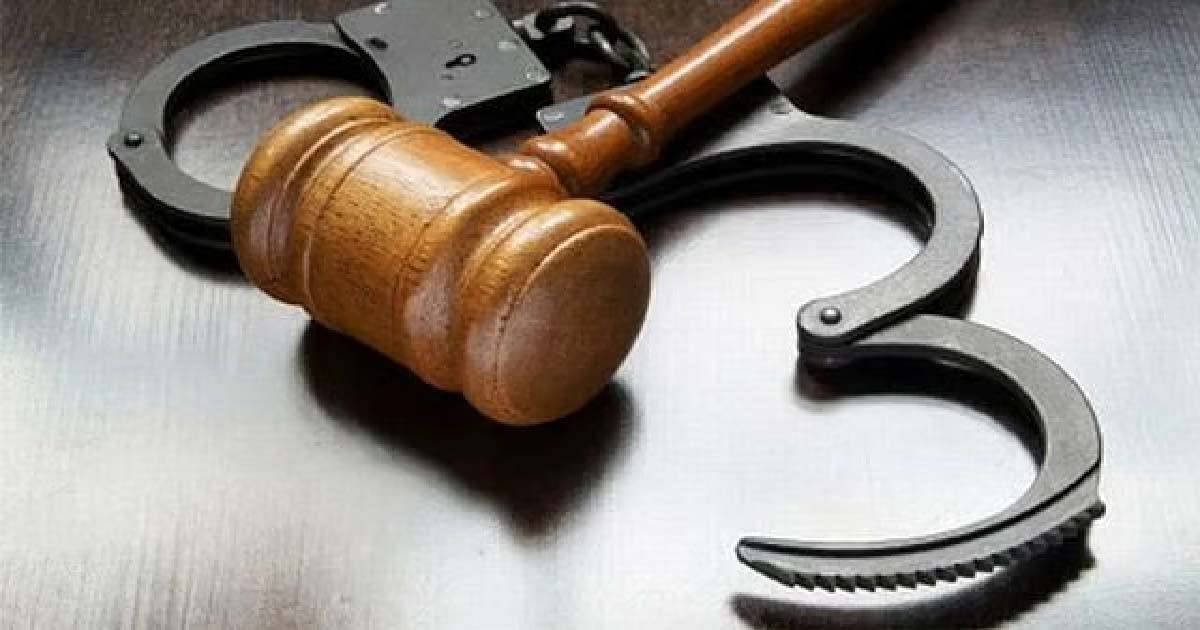Crime
SC closes PIL against alarming rise in lynchings, mob violence

New Delhi, Feb 11: The Supreme Court on Tuesday disposed of a PIL seeking directions to DGPs of states to take immediate action in lynching and mob violence cases in accordance with the directions of the apex court and added that the directions in the Tehseen Poonawalla vs. Union of India case were binding on all authorities across India.
A Bench of Justices B.R. Gavai and K.Vinod Chandran opined that sitting in the national Capital, it cannot monitor incidents in different areas of different states across the country.
“Sitting in Delhi, we cannot monitor incidents in different areas of the country and in our view such micromanagement would not be feasible,” said the Justice Gavai-led Bench.
It added that the directions laid down by the top court in the case of Tehseen Poonawalla vs. Union of India, are binding on all authorities across the country under Article 141 of the Constitution.
In its 2018 judgment in the Poonawalla case, the Supreme Court had directed designation of nodal officer in each district for taking measures to prevent incidents of mob violence and lynching.
“The Director General of Police/the Secretary, Home Department of the concerned states shall take regular review meetings (at least once a quarter) with all the Nodal Officers and State Police Intelligence heads,” it had ordered.
In its order, the Justice Gavai-led Bench stated that an aggrieved person can always seek remedy in accordance with the law, clarifying that the apex court cannot lay down any uniform criteria for the grant of compensation to the victims of mob lynching incidents since the quantum of compensation ought to be decided on a case to case basis.
Further, the apex court refused to examine the validity of cow protection laws introduced in several states, suggesting the litigants to approach the jurisdictional High Court.
“It will be appropriate that persons who are aggrieved approach jurisdictional High Courts to challenge the vires of the legislations/notifications,” the SC said.
During the course of hearing, Solicitor General (SG) Tushar Mehta, the second-highest law officer of the Centre, submitted that mob lynching is a distinct offence under the Bharatiya Nyaya Sanhita (BNS) and if there is any violation, the law will take its own course.
In an earlier hearing, the top court had pulled up the state governments of Assam, Chhattisgarh, Telangana, Maharashtra, and Bihar for not filing their counter-affidavits.
“We clarify that in the event counter affidavits are not filed by the above-mentioned states, the Chief Secretaries of the said states shall remain personally present in the court on the next date of hearing to show cause as to why an action should not be taken against them for non-compliance of the orders of the court,” it had said in an order passed on November 5, 2024.
Earlier in April last year, the apex court had granted six weeks to various state governments to file their reply detailing the action taken in cases of lynchings and mob violence.
“It was expected of the state governments to at least respond and give details as to what action has been taken in respect of the said instances (of lynchings and mob violence). We, therefore, grant six weeks’ time to all the state governments – who have not yet filed their affidavits – to file their counter-reply and give an explanation as to what action has been taken by the states in respect of incidents mentioned in the writ petition or interlocutory applications,” the SC had said.
In July 2023, the Supreme Court issued notice to the Centre and the Haryana, Madhya Pradesh, Bihar, Rajasthan, Odisha, and Maharashtra governments. Later, all state governments were added as parties in the PIL on an application moved by Islamic clerics’ organisation Jamiat Ulama-i-Hind. The plea prayed for a minimum uniform compensation to be determined by the court that should be granted to the victims or their families in addition to the amount determined by the authorities.
“In most cases, minimal action of merely registering FIRs is the only thing that is done by the authorities which seems to be more of a formality than any genuine initiation of the criminal machinery,” the plea said.
Crime
Punjab bypoll: Drugs, liquor, freebies valued at Rs 57.47 crore seized

Chandigarh, Nov 4: After the enforcement of the Model Code of Conduct for the by-election to the Tarn Taran Assembly constituency, Punjab Police, following the directions of the Election Commission, has made seizures of drugs, liquor, cash and freebies valued at over Rs 57.47 crore.
According to details, from October 7, the day the Model Code of Conduct came into effect, till November 3, the police in the Tarn Taran constituency seized 51,429.50 litres of liquor valued at Rs 32,89,160, narcotic substances of Rs 56,67,10,500 (21,811.10 grams), cash amounting to Rs 9,73,480, and other items valued at Rs 37,85,700.
Chief Electoral Officer Sibin C said the police have been directed to maintain round-the-clock surveillance through CCTV cameras at all checkpoints in the constituency to curb illegal smuggling activities.
He added that strict action is being ensured against those attempting to influence voters by distributing cash or any other kind of freebies during the elections.
The Chief Electoral Officer said there are a total of 192,838 voters in the constituency, which includes 100,933 men, 91,897 women and eight third-gender voters. There are 1,357 service voters, 1,657 voters aged above 85 years, 306 NRI voters, and 1,488 voters with disabilities. The number of young voters aged between 18 and 19 years stands at 3,333.
He said there are 222 polling stations set up at 114 polling station locations, of which 60 are urban and 162 are rural.
The Tarn Taran bypoll on November 11 was necessitated by the death of AAP MLA Kashmir Singh Sohal, who had won the seat with 52,935 votes, defeating Shiromani Akali Dal’s Harmeet Singh Sandhu.
Fifteen candidates are in the fray. They include Sukhwinder Kaur of the Shiromani Akali Dal, Harjit Singh Sandhu of the BJP, Harmeet Singh Sandhu of the Aam Aadmi Party, and Karanbir Singh of the Congress.
Crime
NHRC notice to K’taka govt over ‘bribes’ taken from dead woman’s father

New Delhi, Nov 4: The NHRC has sought a report within two weeks from the Karnataka government and state police chief over the alleged collection of bribes from a grieving 64-year-old father of a woman who died after a brain haemorrhage, an official said on Tuesday.
The alleged harassment of the man started after the death of his daughter, an IIT Madras and IIM Ahmedabad graduate working in Bengaluru, who suffered a brain haemorrhage on September 18.
The National Human Rights Commission (NHRC) has taken suo motu cognisance of a media report that, while mourning the death of his only daughter, the elderly man was made to pay bribes at every step, including an ambulance driver, police, crematorium staff and civic officials in Bengaluru, Karnataka.
According to the media report, carried on October 30, what should have been a solemn farewell turned into a nightmare of corruption, bureaucracy and inhumanity.
The Commission has observed that the contents of the news report, if true, raise serious issues of violation of human rights. Therefore, it has issued notices to the Chief Secretary and the Director General of Police, Karnataka, calling for a detailed report on the matter within two weeks.
When the father called an ambulance after the death of his daughter, the ambulance driver apparently overcharged for the services. When he reported his daughter’s death to the police, they not only displayed a lack of empathy but also gave copies of the FIR and post-mortem report only after a bribe was paid.
According to the media report, the deceased’s family donated the girl’s eyes before cremation. Money was again demanded at the crematorium, which the father paid.
There was also a considerable delay in issuing a death certificate from the Mahadevapura Municipal authorities. Despite intervention by a senior officer, the certificate was issued only after the father paid a bribe.
Earlier, the NHRC asked 19 state governments and 4 UT Administrations to take pre-emptive steps and implement relief measures for vulnerable people ahead of the upcoming winter season.
The Commission directed the State and UT governments to protect newborns, children, infants, poor, elderly, homeless, destitutes and people involved in beggary, who are at risk of exposure to cold waves due to lack of shelter and resources, said a statement.
The right body also called for Action-Taken Reports from the government on steps taken to deal with cold waves and stressed upon the need for sensitising the State/UT authorities concerned.
Crime
Bombay High Court Grants Bail To 65-Year-Old Accused In 2011 Mumbai Triple Blasts Case

Mumbai: The Bombay High Court on Tuesday granted bail to Kafeel Ahmed Mohammed Ayub, 65, who was arrested thirteen years ago in connection with the July 13, 2011 triple blasts case that killed 27 persons and injured 127.
A bench of Justices Ajey Gadkari and RR Bhonsale granted bail to Ayub on a surety of Rs one lakh. A detailed order copy is awaited. At present, he is lodged at the Mumbai Central prison.
Ayub had approached the HC after his bail plea was rejected by the special court in 2022.
Ayub, a resident of Bihar, was arrested in February 2012 and has been in custody since then.
On July 13, 2011, Mumbai was rocked by three blasts — at Zaveri Bazaar, Opera House and near a school in Dadar Kabutarkhana close to the railway station — in a span on 10 minutes.
The probe was handed over to the state Anti Terrorism Squad (ATS) police. It alleged that terror outfit Indian Mujahideen (IM) had orchestrated the blasts and the main conspirator was its founder Yasin Bhatkal. Eleven persons are facing trial in the case.
According to the ATS, Ayub and the other accused in the case were indoctrinating Muslim youths to carry out terror acts at the behest of IM. It further claimed that Ayub was in close contact with Yasin Bhatkal, who is alleged to be the main conspirator, and is still absconding.
Ayub’s advocate Mubin Solkar argued that Ayub has been languishing in jail for over a decade. The prosecution has said it would examine 800 witnesses, and not a single witness has been examined yet, his plea contended.
His plea claimed that he is innocent and implicated in the case. Moreover, the prosecution has no evidence against him except his own confession which he said was not given voluntarily.
-

 Crime3 years ago
Crime3 years agoClass 10 student jumps to death in Jaipur
-

 Maharashtra1 year ago
Maharashtra1 year agoMumbai Local Train Update: Central Railway’s New Timetable Comes Into Effect; Check Full List Of Revised Timings & Stations
-

 Maharashtra1 year ago
Maharashtra1 year agoMumbai To Go Toll-Free Tonight! Maharashtra Govt Announces Complete Toll Waiver For Light Motor Vehicles At All 5 Entry Points Of City
-

 Maharashtra1 year ago
Maharashtra1 year agoFalse photo of Imtiaz Jaleel’s rally, exposing the fooling conspiracy
-

 National News1 year ago
National News1 year agoMinistry of Railways rolls out Special Drive 4.0 with focus on digitisation, cleanliness, inclusiveness and grievance redressal
-

 Maharashtra12 months ago
Maharashtra12 months agoMaharashtra Elections 2024: Mumbai Metro & BEST Services Extended Till Midnight On Voting Day
-

 National News1 year ago
National News1 year agoJ&K: 4 Jawans Killed, 28 Injured After Bus Carrying BSF Personnel For Poll Duty Falls Into Gorge In Budgam; Terrifying Visuals Surface
-

 Crime1 year ago
Crime1 year agoBaba Siddique Murder: Mumbai Police Unable To Get Lawrence Bishnoi Custody Due To Home Ministry Order, Says Report












